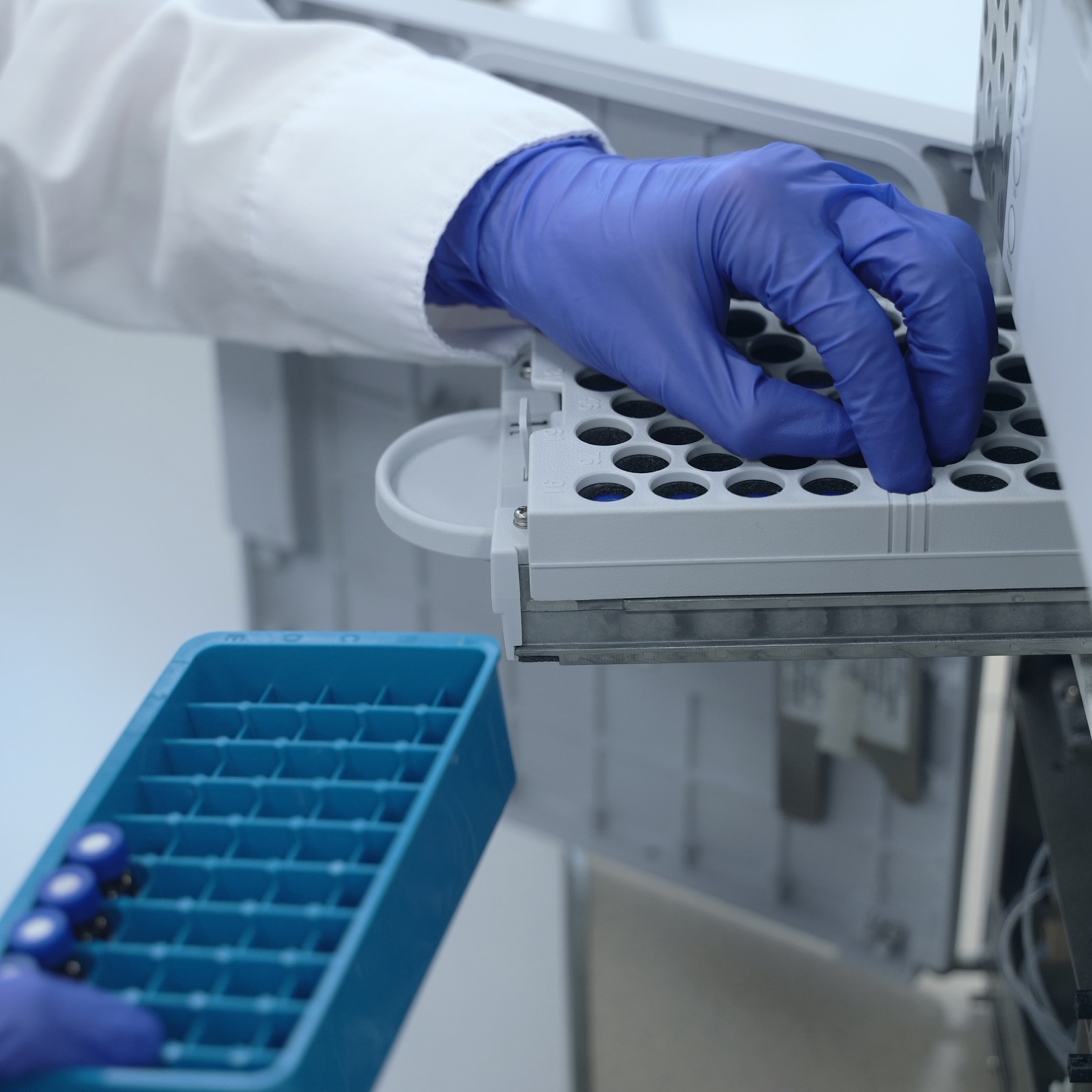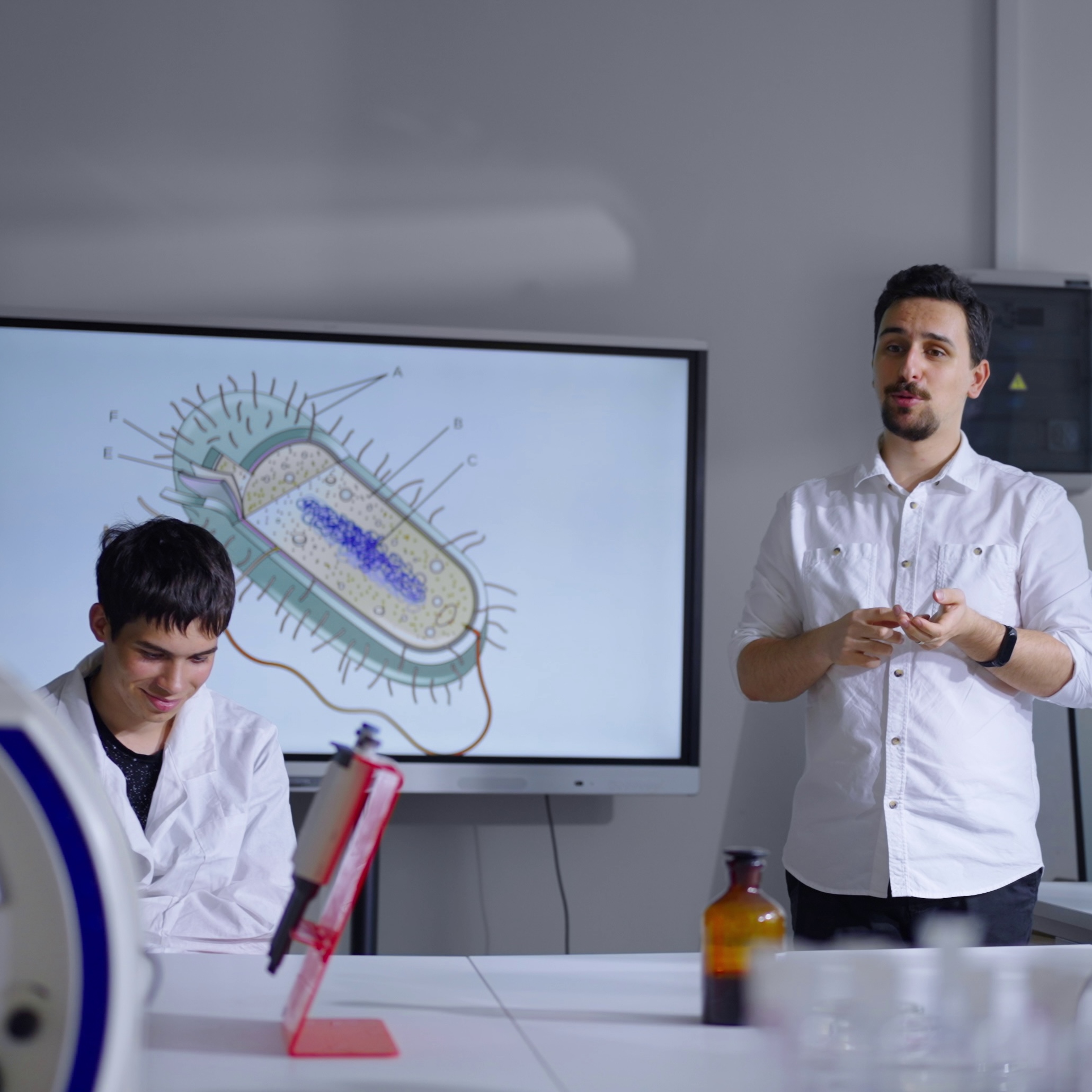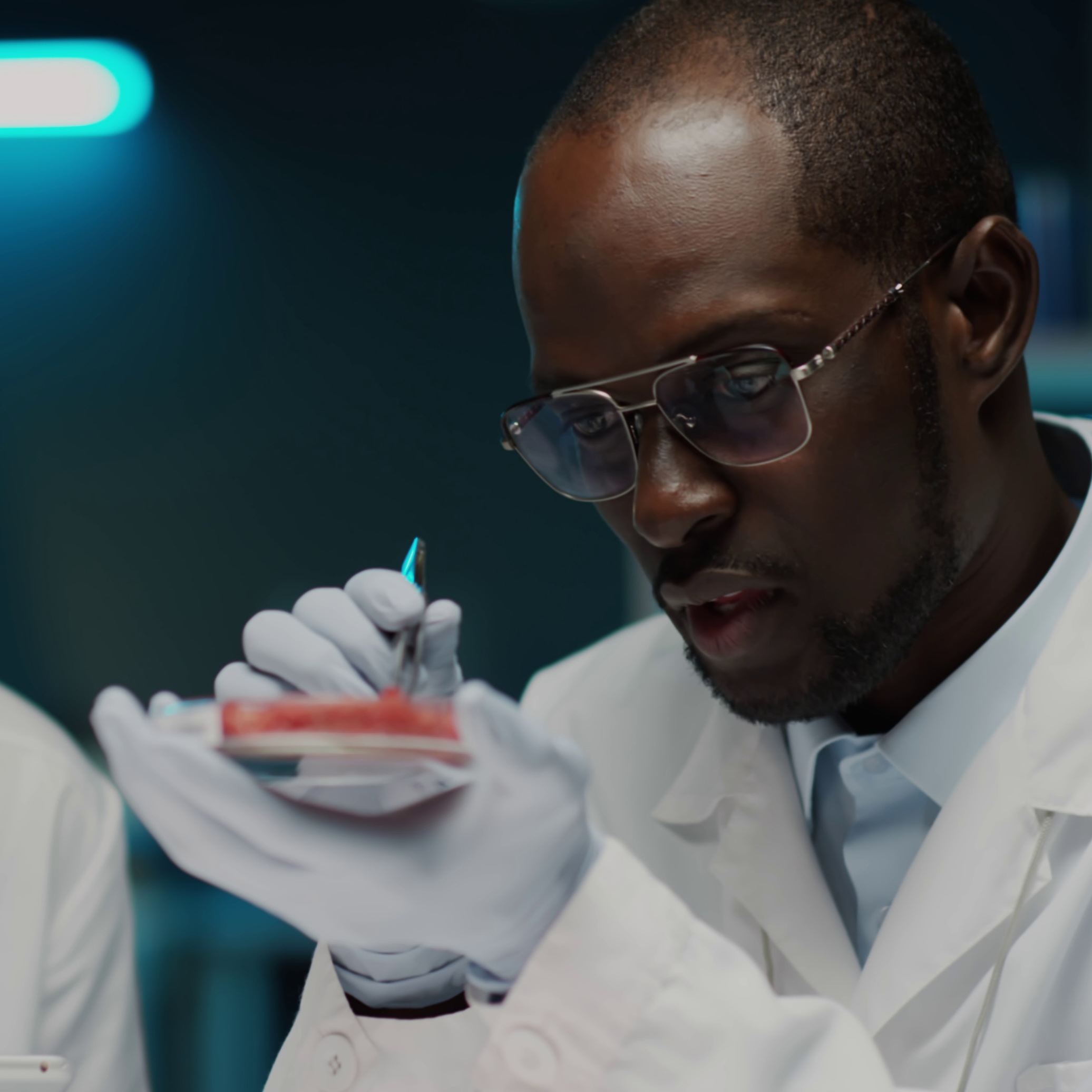One-Year Master's Program In Cell and Molecular Biology
Overview
Why earn a Master’s degree in Cell & Molecular Biology at Tulane?
The Master's in Cell and Molecular Biology program is designed to enhance the competitiveness of students applying to postgraduate professional schools, especially Medical and Dental School, but also Veterinary School, Optometry School, Business School, Law School, and Ph.D. programs.
There are many Post-Bac and Master’s programs available, most with the goal of helping a student take the next step in their professional education. Tulane’s Cell & Molecular Biology MS program is more than just another year of classes, and offers many advantages over other programs.
What makes the CMB Master’s program at Tulane unique?
The program focuses on professional development.
- Professional Speaker Series: Healthcare is provided by a broad array of professionals. Representatives of these professions speak about education and training, their responsibilities, and the opportunities available in their profession. As examples, we discuss the training, responsibilities, income, and employment potential of physician assistants, physical therapists, and the whole array of opportunities in nursing.
- Cultivating Communication Skills: Clinicians and scientists both need to communicate effectively with other professionals as well as the general public. Communication skills will be cultivated through student presentations in research seminars and Journal Clubs.
- Mentoring and Advising: Each students communicates regularly with an assigned faculty member, who closely monitors their progress. Our faculty works with each student's unique strengths and weaknesses to assist them in meeting their career goals.
MCAT, DAT and GRE preparation classes, conducted by KAPLAN instructors, are incorporated into the curriculum.
- KAPLAN test preparation classes are held during the spring semester.
- The cost for the KAPLAN classes is included in the students' tuition.
Student will complete 50 hours of service learning and shadowing at local hospitals, clinics, coroners' offices, research labs, and other locations around New Orleans per semester.
- Locations are selected to provide experiences which will enhance career preparation and provide direct contact with patients and healthcare providers.
Emphasis is placed on foundational classes in Biology while introducing students to more clinically relevant topics such as human anatomy, histology, embryology, biochemistry, physiology and disease.
- Students take 30 credit hours over the course of two semesters.
Resources
Tuition can be found at this link: Student Accounts
Additional required fees charged each semester: https://studentaccounts.tulane.edu/tuition-and-fees
Dr. James "Jim" Cronin
cronin@tulane.edu
Tulane University School of Science and Engineering
Department of Cell and Molecular Biology
One-Year Master's Program
6400 Freret Street, MB 1380
2000 Percival Stern Hall
Tulane University
New Orleans, Louisiana 70118
(504) 865-5546
Requirements for admission to our program are as follows:
- A Bachelor's Degree in any discipline
- Completed Chemistry and Biology or Cell Biology
- GPA of 3.0 or higher
- GRE, MCAT, DAT or OAT scores are optional
- Two letters of recommendation; it is preferred that both be in the field of science
We accept students from a broad range of academic backgrounds, however it is necessary for success in our program that students have taken general science courses and received a B or higher.
If you have a question, please be sure to read through our frequently asked questions before calling our office.
Students must complete a total of 30 credit hours, with a cumulative GPA of a 3.0 or higher on a 4.0 scale, in order to receive his or her MS degree.
All students are required to take the following courses, which total 6 credit hours:
Required Courses
| Fall | Spring |
|---|---|
| CELL 7860 Seminars in CMB (3 credits)* | CELL 7860 Seminars in CMB (3 credits)* |
The remaining 24 credits will consist of lecture or lab courses such as the electives listed below.
Elective Courses
CELL 6000: Biomedical Ethics [3 Credits]
CELL 6010: Cellular Biochemistry [3 Credits]
CELL 6030: Molecular Biology [3 Credits]
CELL 6035: Molecular Biology Laboratory [1 Credit]
CELL 6050: Foundations of Pharmacology [3 Credits]
CELL 6070: Neurobiology of Aging [3 Credits]
CELL 6080: Advanced Developmental and Cell Biology II [3 Credits]
CELL 6110: Human Histology [4 Credits]
CELL 6130: Embryology [4 Credits]
CELL 6150: Methods in Neuroscience [3 Credits]
CELL 6155: Methods in Neuroscience Laboratory [3 Credits]
CELL 6160: Developmental Biology [3 Credits]
CELL 6180: Animal Models in Biomedical Research [3 Credits]
CELL 6200: General Endocrinology [3 Credits]
CELL 6210: Physiology [3 Credits]
CELL 6220: Microbiology [3 Credits]
CELL 6225: Microbiology Laboratory [1 Credit]
CELL 6230: Virology [3 Credits]
CELL 6310: Cellular Neuroscience [3 Credits]
CELL 6320: Systems Neuroscience [1 Credit]
CELL 6325: Neuroanatomy Laboratory [3 Credits]
CELL 6340: Neurobiology of Disease [3 Credits]
CELL 6350: Developmental Neurobiology [3 Credits]
CELL 6360: Topics in Neurophysiology [3 Credits]
CELL 6370: Molecular Neurobiology [3 Credits]
CELL 6400: Regenerative Biology [3 Credits]
CELL 6440: Advanced Molecular Biology [3 Credits]
CELL 6450: Genome Biology [3 Credits]
CELL 6480: Head and Neck Anatomy [3 Credits]
CELL 6490: Anatomy/ with human cadaver lab [4 Credits]
CELL 6550: Synaptic Organization of the Brain [3 Credits]
CELL 6560: Fundamentals of Pathophysiology [3 Credits]
CELL 6660: Special Topics in Cell & Molecular Biology [1-3 Credits]
CELL 6710: Molecular Biology of Cancer [3 Credits]
CELL 6750: Cell Biology [3 Credits]
CELL 6755: Cell Biology Laboratory [1 Credit]
CELL 6780: Developmental Genetics [3 Credits]
CELL 6840: Current Topics in Developmental Biology [3 Credits]
Students may be permitted to take electives from other departments with the approval of the program's Co-Directors.
*This course will include on site work experiences coupled with formal classroom presentations summarizing the work. The Experiential component includes 50 required hours per semester and will be tailored to the student's career path which can range from traditional laboratory research to Service Learning programs in medical or professional settings.
Applications must be submitted with all required documents using Tulane's School of Science and Engineering Graduate Application portal.
- All relevant documents must be uploaded with your application BEFORE clicking submit. The application system for Fall 2026 will open October 1, 2025. Applications are reviewed as they become complete, Students are therefore encouraged to apply as early as possible.
A complete application must include:
- Completed application, including statement of purpose.
- Two letters of recommendation, preferably both in the field of science. Students may also use their committee or individual letters for professional schools. We accept committee letters from all processing centers; Interfolio, University Pre-Health Professional Offices, etc.
- GRE, MCAT, DAT, or OAT scores are strongly encouraged but not required. You do not need to submit official scores. Copies are sufficient.
- Unofficial transcripts from all previous academic institutions. Official transcripts are only required if you are accepted into the program. Please upload the copies of your transcripts with your application.
- Resume or CV which will list all relevant experiences such as research, employment, volunteering, and shadowing.
Once we have received all the required information, your application will be complete and will be viewed by the department's Master's Program Admissions Committee.
If you have a question, please be sure to read our frequently asked questions. We add new answers to common questions weekly.
Correspondence and Information
By Mail
Tulane University School of Science and Engineering
Department of Cell and Molecular Biology
6400 Freret St., MB 1380
New Orleans, LA 70118
By Phone
(504) 865-5546
Program Director
Dr. Jim Cronin (cronin@tulane.edu)
Operations Manager/Program Coordinator
Shana Johnson (shana@tulane.edu)
Videos



